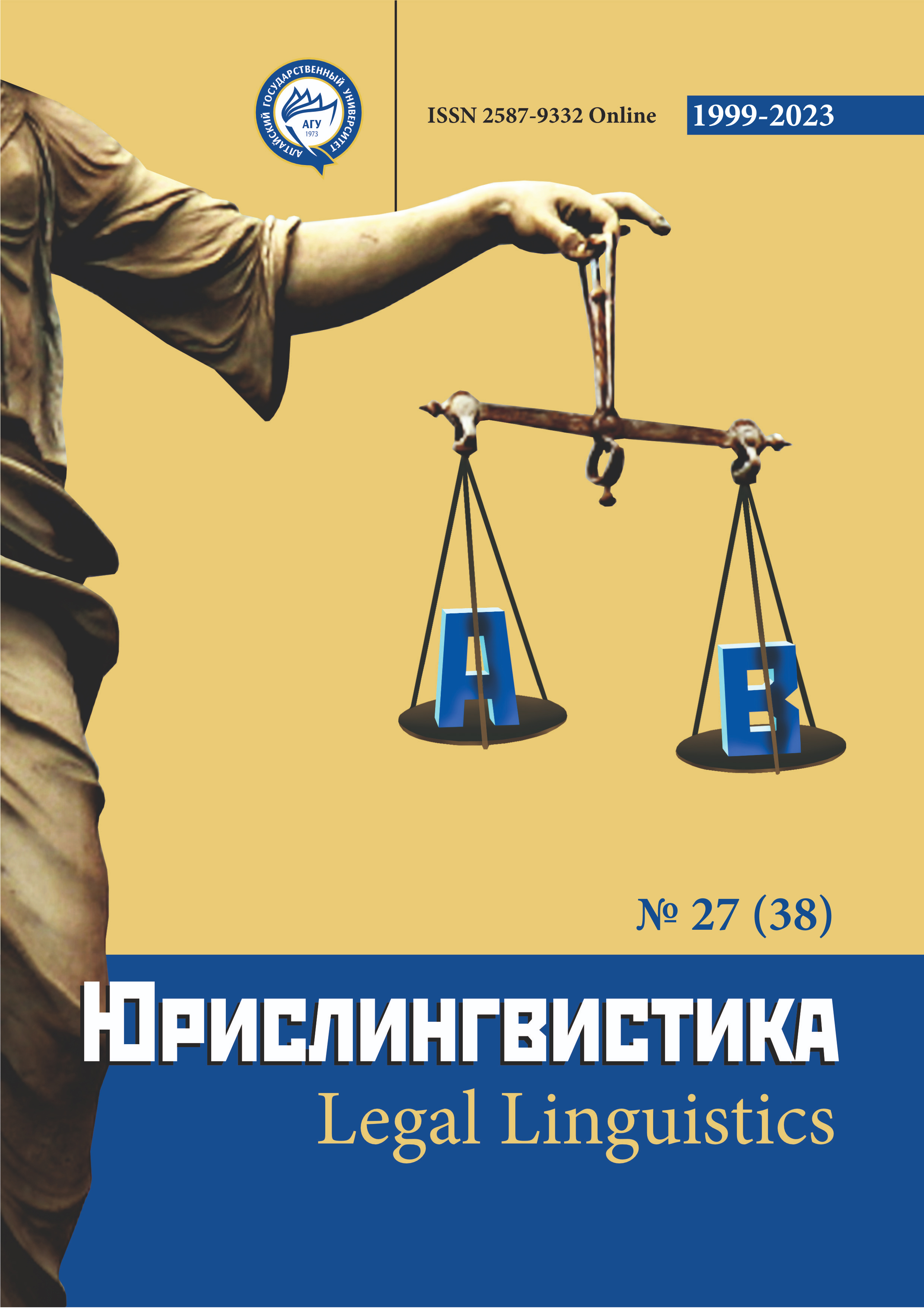Types of Legal Bonds Arising in the Mechanism of Ensuring the Proper Discharge of Duty by Participants in Criminal Proceedings
УДК 343.1 ББК 67.4
Abstract
The article discusses the problem of ensuring the discharge of duty of participants in criminal proceedings. The article reveals the elementary structure of the security mechanism, functioning of which guarantees the proper discharge of the duty of participants in criminal proceedings. The heterogeneity of the elements that make up the internal structure of the security mechanism under consideration is determined and the types of bonds that arise between them during their interaction are established. The importance of these bonds for the functioning of the mechanism for ensuring the proper discharge of criminal procedural duties is assessed. The forms of manifestation of these bonds at implementation of the law-enforcement by the authorities in criminal cases are revealed.
Downloads
Metrics
References
Алексеев С. С. Структура советского права. М., 1975.
Петухов Е. Н. Теоретические основы концепции гарантированного исполнения уголовно-процессуальных обязанностей / Проблемы теории и практики исполнения уголовно-процессуальных обязанностей: сборник статей XX Международной научно-практической конференции «Уголовно-процессуальные и криминалистические чтения на Алтае». – Вып. XVIII / под ред. С. И. Давыдова, Е. Н. Петухова, В. В. Полякова. – Барнаул, 2022. – С. 33-46.
Copyright (c) 2023 Евгений Петухов

This work is licensed under a Creative Commons Attribution 4.0 International License.
The authors, which are published in this journal, agree to the following conditions:
1. Authors retain the copyright to the work and transfer to the journal the right of the first publication along with the work, at the same time licensing it under the terms of the Creative Commons Attribution License, which allows others to distribute this work with the obligatory indication of the authorship of this work and a link to the original publication in this journal .
2. The authors retain the right to enter into separate, additional contractual agreements for the non-exclusive distribution of the version of the work published by this journal (for example, to place it in the university depository or to publish it in a book), with reference to the original publication in this journal.
3. Authors are allowed to post their work on the Internet (for example, in a university repository or on their personal website) before and during the review process of this journal, as this may lead to a productive discussion, as well as more links to this published work (See The Effect of Open Access).











